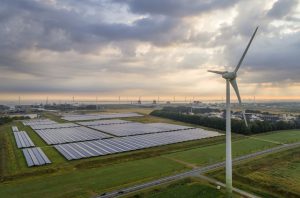After 10 consecutive months of unprecedented heat, this year is “virtually certain” to become the world’s warmest since records began, the European Union’s Copernicus Climate Change Service (C3S) said on Thursday.
It will also be the first year in which the planet is more than 1.5C hotter than in the 1850-1900 pre-industrial period — when humans began burning fossil fuels on an industrial scale, Copernicus scientists said.
C3S said that from January to October, the average global temperature had been so high that 2024 was sure to be the world’s hottest year – unless the temperature anomaly in the rest of the year plunged to near-zero.
Also on AF: Trump Will Have Big Impacts on Trade, Climate Change, EVs
C3S’ records go back to 1940, which are cross-checked with global temperature records going back to 1850.
“The fundamental, underpinning cause of this year’s record is climate change,” C3S Director Carlo Buontempo told Reuters.
“The climate is warming, generally. It’s warming in all continents, in all ocean basins. So we are bound to see those records being broken,” he said.
The C3S report noted the global-average temperature for the past 12 months was an estimated 1.62°C above the 1850-1900 pre-industrial average.
That’s already above the 1.5 degrees celsius threshold set in the 2015 Paris Agreement — which aims to limit global warming to that temperature to avoid its worst consequences.
But it doesn’t yet mean the world has breached Paris Agreement target, as it refers to an average global temperature of 1.5C over decades.
However C3S now expects the world to exceed the Paris goal around 2030.

Extreme weather worries
“The limits that were set in the Paris Agreement are starting to crumble given the too-slow pace of climate action across the world,” Sonia Seneviratne, a climate scientist at public research university ETH Zurich, told Reuters.
Seneviratne said she was not surprised by the milestone, and urged governments at COP29 to agree stronger action to wean their economies off CO2-emitting fossil fuels.
Carbon dioxide emissions from burning coal, oil and gas are the main cause of global warming. And every fraction of temperature increase fuels extreme weather.
In October, catastrophic flash floods killed hundreds of people in Spain, record wildfires tore through Peru, and flooding in Bangladesh destroyed more than 1 million tons of rice, sending food prices skyrocketing. In the US, Hurricane Milton was also worsened by human-caused climate change.
Those events were part of a year full of weather anomalies, with warming weather fuelling droughts, storms and floods throughout Asia. In China, disasters linked to warming climate racked economic losses worth more than $30 billion in the third quarter of the year alone.
The Trump shadow
Despite those concerns, though, the C3S findings come at a tricky time for the world.
The UN’s COP29 climate summit is set to kick off in Azerbaijan next week, where delegates will look to finalise how much money should go each year to helping developing countries cope with climate-related costs.
They will also look to set clearer goals on transitioning away from fossil fuels and resolve rules for trading carbon credits earned through the preservation of forests and other natural carbon sinks.
But the meet will be overshadowed by the re-election of Donald Trump, whose policies as president could hike US carbon emissions by 2.7 billion tonnes.

While on the campaign trail, Trump strongly criticised the global transition towards wind energy and the increasing adoption of electric vehicles (EVs). He also called climate change “a big hoax”.
Climate activists worry his return as the US president to hit global climate-related dialogue like “a wrecking ball”.
Trump has been vocal denier of climate change — a stance he maintained through his first presidency as well, when he pulled the US out of the Paris Climate Accords.
While outgoing US President Joe Biden reversed that decision, Trump has promised to repeat that move during his presidency.
Even so, experts argue Trump is unlikely to dramatically slow the US renewable energy boom.
“I don’t think a Trump president can slow the transition,” Ed Hirs, energy fellow at the University of Houston, told Reuters. “This is well under way.”
- Reuters, with additional editing and inputs from Vishakha Saxena
Also read:
Climate Change Leaves Japan’s Iconic Mount Fuji Snowless
Emissions of World’s Super Rich ‘Drive Economic Losses, Deaths’
Funding Gap Hurts Climate Talks While World Faces 3.1C Warming
Floods or Drought: Climate Change Worsens Global Water Woes
Climate Change ‘Fuelled’ Rain That Led to Fatal Indian Landslides
Energy Emissions Set to Peak But ‘Not in Time’ For Climate Goals
Scientists Fear Nature’s Carbon Sinks Are Failing – Guardian
Satellite Finds Methane, CO2 Plumes Over Sites in Asia, Africa, US
Could Melting Glaciers Trigger Volcanic Eruptions? – Reuters























